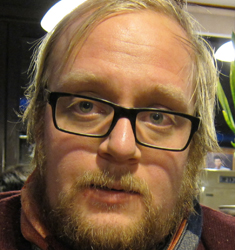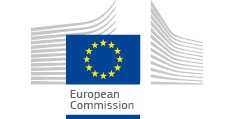Food Waste in Denmark and Sweden
Sebastian Abrahamsson has been granted 212.195 Euro and a Marie Skłodowska-Curie Fellowship at Copenhagen Centre for Health Research in the Humanities (CoRe), Saxo Institute. The project will address consumer food waste.
- Understanding Household Consumption Practices to develop Sustainable Food Care
 Exploring consumer food waste behaviour
Exploring consumer food waste behaviour
Globally, a startling amount of food is being wasted. This is costly, both in financial and in environmental terms. Consumers, especially those living in wealthier regions of the world, throw away considerable amounts of food. Based on the alarming numbers reported in statistical research on food waste, campaigns and public policy is being developed to change consumer behaviour.
However, much of current food waste research, campaigning and policy is not based on any actual knowledge of what consumers do:
- How do ‘ordinary consumers’ actually go about buying and then using and/or wasting food?
- Which daily life tinkering techniques have they invented?
- And how do societal and technological infrastructures enable or disable food waste avoidance?
Challenging current understandings
The present research project will study how consumers handle their food (buy it, use it, waste it, and/or avoid wasting it). Mixed methods will be used to comparatively study online anti-wasting campaigns/communities and household practices in two Danish and two Swedish cities in the Oresund region. In the process current understandings of food waste will be challenged by:
- combining a focus on wasting practices and understanding the perishable nature of food
- highlighting the techniques that consumers use to avoid wasting by caring for it; and
- exploring how people balance sustainable food care with other hopes and daily life demands.

Sebastian Abrahamsson
Strengthening knowledge for sustainable actions
By fleshing out the concepts of timing, caring and negotiating the project will develop an original theoretical repertoire for understanding food wasting. The results will enrich our knowledge and be valuable for;
- further development of sustainable policies and actions directed against food wasting within the EU
- retailers, consumers, and others who handle food, and
- other academics researching food and/or wasting.
Sebastian Abrahamson’s project will also further strengthen the already existing food research at Copenhagen Centre for Health Research in the Humanities (CoRe) and the Saxo Institute.
Related News
Financed by
About Sebastian Abrahamsson
Sebastian Abrahamsson has a PhD degree in Human Geography from Oxford University. 2010-2014 he has been working as a postdoctoral fellow with renowned Dutch etnographer and philosopher AnneMarie Mol at the University of Amsterdam.

